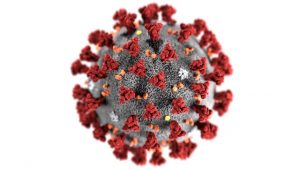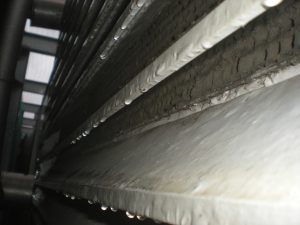Excellent advice about HVAC and Covid-19 is coming out from REHVA. The latest version 4 can be downloaded here This advice will help us all get back to work as normal.
Good news
The good news is that: “it is important to recognise that current technology and knowledge already allows the use of many rooms in buildings during a COVID-19 type of outbreak if ventilation meets existing stand
ards” and “Aerosol transmission (i.e. very small particles) means ventilation becomes even more important and a well-ventilated space is safer than a poorly or non- ventilated room”
Effect of Duct Cleaning
There has however been some misunderstanding of the statement that “Duct cleaning has no practical effect”. This actually means that there is no point in cleaning ductwork in order to remove any coronavirus particles. It underlines that dirty ductwork is extremely unlikely to provide a source of infective viral material.
One of the main reasons that duct cleaning is not recommended per se for Covid-19 is that viruses are different to bacteria and fungi. They cannot survive for long outside the body of their host. Unlike bacteria and fungi, they cannot grow and proliferate even in the dirtiest ductwork.
It does NOT mean that duct cleaning should NOT be done. Indeed, the advice is: “Carry out scheduled duct cleaning as normal”
The real point is that: “No additional cleaning is required”, in order to remove coronavirus as a source of contamination of the air passing through the duct.
Likewise REHVA emphasises that it is pointless to change HVAC filters more frequently than normal, or to adjust heating, cooling or possible humidification setpoints.
Why has this confusion happened?
The advice that no additional cleaning is required comes about to counter “overreactive statements recommending cleaning ventilation ducts to avoid SARS-CoV-2 transmission via ventilation systems”. This is possibly too polite – in fact we think it refers to rogue contractors who have been making untrue statements, thus risking bringing the reputation of the great majority of contractors into disrepute. We know of no EVHA members making such over-blown claims. If a member was found to be doing so, it would be a disciplinary matter as against the EVHA Code of Ethics
What should be done?
On the positive side: all efforts should be concentrated on ensuring maximal ventilation to dilute and remove airborne infective droplets. From a duct hygiene point-of-view, this does mean that ductwork and HVAC components should be clean so that they can work as intended. See our previous blog about clogging and reduction of airflow (and so reduction of ventilation) caused by fouling of systems.

Dirty extract duct reduces airflow

Clogged pest guard
So do not misunderstand: ductwork should be kept clean as per normal maintenance standards, and also to ensure that HVAC systems perform as intended in the fight against Covid-19.
As always: the first step is to internally inspect the HVAC system and its ductwork.